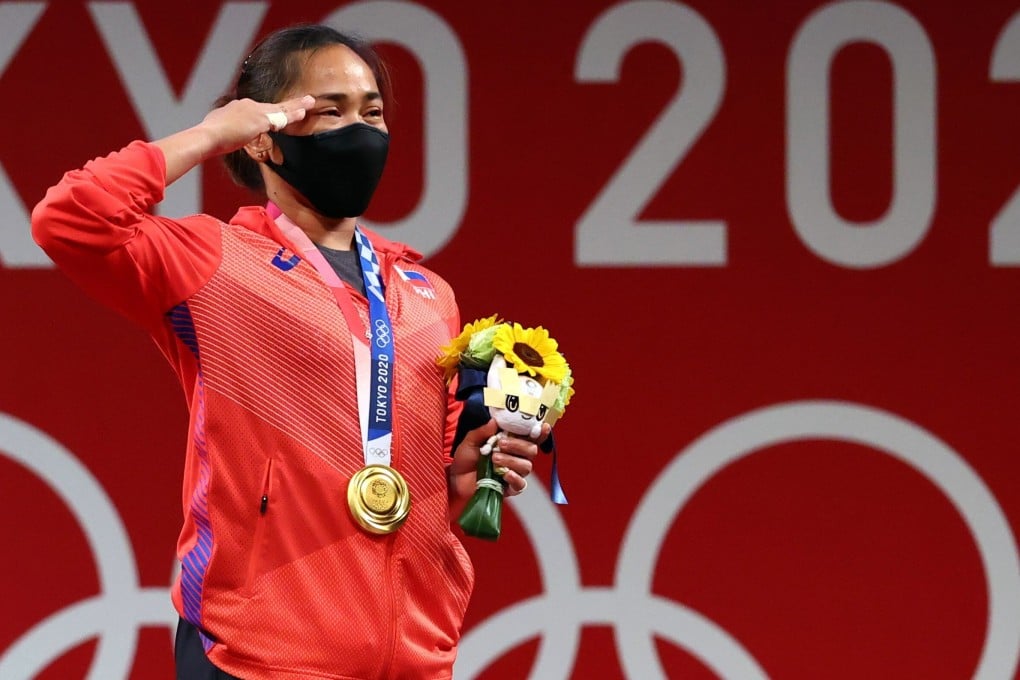Tokyo Olympics: how the Philippines won multiple medals for the first time
- The Philippines is celebrating after Hidilyn Diaz won the country’s first Olympic gold medal, while boxers also won two silvers and a bronze
- Athletes credit divine intervention and better training, but a coach said achieving an ‘elite level’ requires hard work, more money and more support

Since 1924, Filipino athletes have only managed two silvers and eight bronzes. But this year weightlifter Hidilyn Diaz won gold, while boxers Nesthy Petecio and Carlo Paalam won silver medals and Eumir Marcial got a bronze.
No one outside the boxing and weightlifting communities expected any medals at the Tokyo Olympic Games. Financial support for training is so meagre that Diaz and Marcial had to publicly beg for funds.
The athletes and their coaches credited their victories to divine intervention, their intense and strategic preparation, better self-confidence and mental training, a highly professional support team, and the kindness of foreigners.
The boxers were welcomed by the Thailand Boxing Federation while they trained there. Diaz was hosted by a Muslim family in Malaysia who converted part of their backyard into an open air gym for her. And gymnast Carlos Yulo was welcomed by his Japanese coach Munehiro Kugimiya to train with him in Tokyo for the last three years.
Diaz, who won her gold medal on July 26 by lifting 127kg – or 1kg more than China’s Liao Qiuyun in the clean and jerk – told reporters she hardly slept after her victory “because I could still not believe I won the gold”.